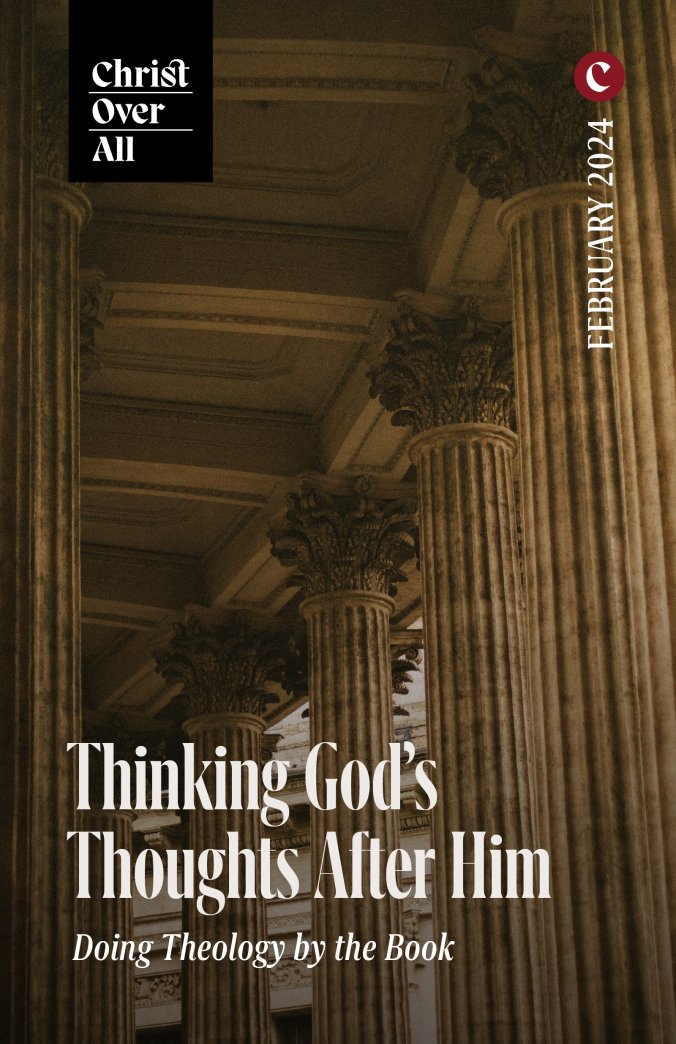 Figment. Absurd. Gross.
Figment. Absurd. Gross.
These are but three of the names John Calvin calls the position I hold on Genesis 6. And while, he doesn’t employ his most common insult (stupid!), I am sure he would have little trouble applying that label to the view that angels had sexual relations with women, such that the Nephilim (or giants) were the resultant offspring.
For indeed, when considering who the sons of God were in Genesis 6, he excoriates the ancient view that believed the sons of God (=angels) came from heaven to consort with the daughters of man. He writes in his commentary on Genesis 6, “That ancient figment, concerning the intercourse of angels with women, is abundantly refuted by its own absurdity; and it is surprising that learned men should formerly have been fascinated by ravings so gross and prodigious [strange or unusual].” [1]
Following this view, he adds another, namely, the idea that the sons of God were royal sons and the daughters of men were commoners. The problem in this case was the way that the nobility chased the commoners, resulting in offspring of mixed hereditary stock.[2] On this second view, whom he assigns to the “Chaldean paraphrast” (i.e., the Babylonian Talmud), we can agree that this interpretation fails to follow the terms of Scripture. (Yet, it is not far from another view that will be referenced below.)
In contrast to both views, Calvin then offers his—the idea that has become popular among so many evangelicals today. He sees the sons of God as the male heirs of Seth and the daughters of man as the female offspring of Cain. While Calvin frames this division in theological terms (i.e., the sons being chosen by grace and the daughters being left in their common condition), his reading is purely human, and wreaks nothing of gross absurdity.[3] Or, so he believes.
Historically, his view, which goes back to Augustine and before that to Julius Africanus (c. 160–240), can be summarized under the title of the Sethite position, while my position, which goes back to the Jewish interpreters of the Second Temple period might be titled the Fallen Angel position. Additionally, there is the view that understands the sons of God in royal terms, but not like that described by Calvin, what I’ll label the Kings of the Earth position.
In what follows, I want to lay out these three positions and begin to explain why I believe Calvin’s mockery of this position is wrong. As always, it is not a light thing to disagree with such an eminent theologian, but as a Baptist, Calvin’s insults don’t bother me. I’ve disagreed with him before, and here I will do so again. I will argue that his Sethite view is reasonable, but not ultimately persuasive. Better, we should read Genesis 6 in the context of the whole Bible, and when we do we will discover the fact that the angels of heaven left their proper abode, consorted with human women, and thus invited the judgment of God which led to the cosmic flood. Continue reading



 Each month, I write editorial transition for the website
Each month, I write editorial transition for the website 
 This month our church returns to the Gospel of John, and specifically we have started to look at the Upper Room Discourse (John 13–17), picking up in John 14. For those familiar with John 14–16, as well as the whole book of John, you know how often trinitarian themes, doctrines, and verses emerge. As John recounts the way Jesus speaks of his Father, the promise of sending the Spirit, and the relationship between Father, Son, and Spirit, we have perhaps the richest vein in Scripture for mining trinitarian gold.
This month our church returns to the Gospel of John, and specifically we have started to look at the Upper Room Discourse (John 13–17), picking up in John 14. For those familiar with John 14–16, as well as the whole book of John, you know how often trinitarian themes, doctrines, and verses emerge. As John recounts the way Jesus speaks of his Father, the promise of sending the Spirit, and the relationship between Father, Son, and Spirit, we have perhaps the richest vein in Scripture for mining trinitarian gold. And what was the one God seeking? Godly offspring.
And what was the one God seeking? Godly offspring.
